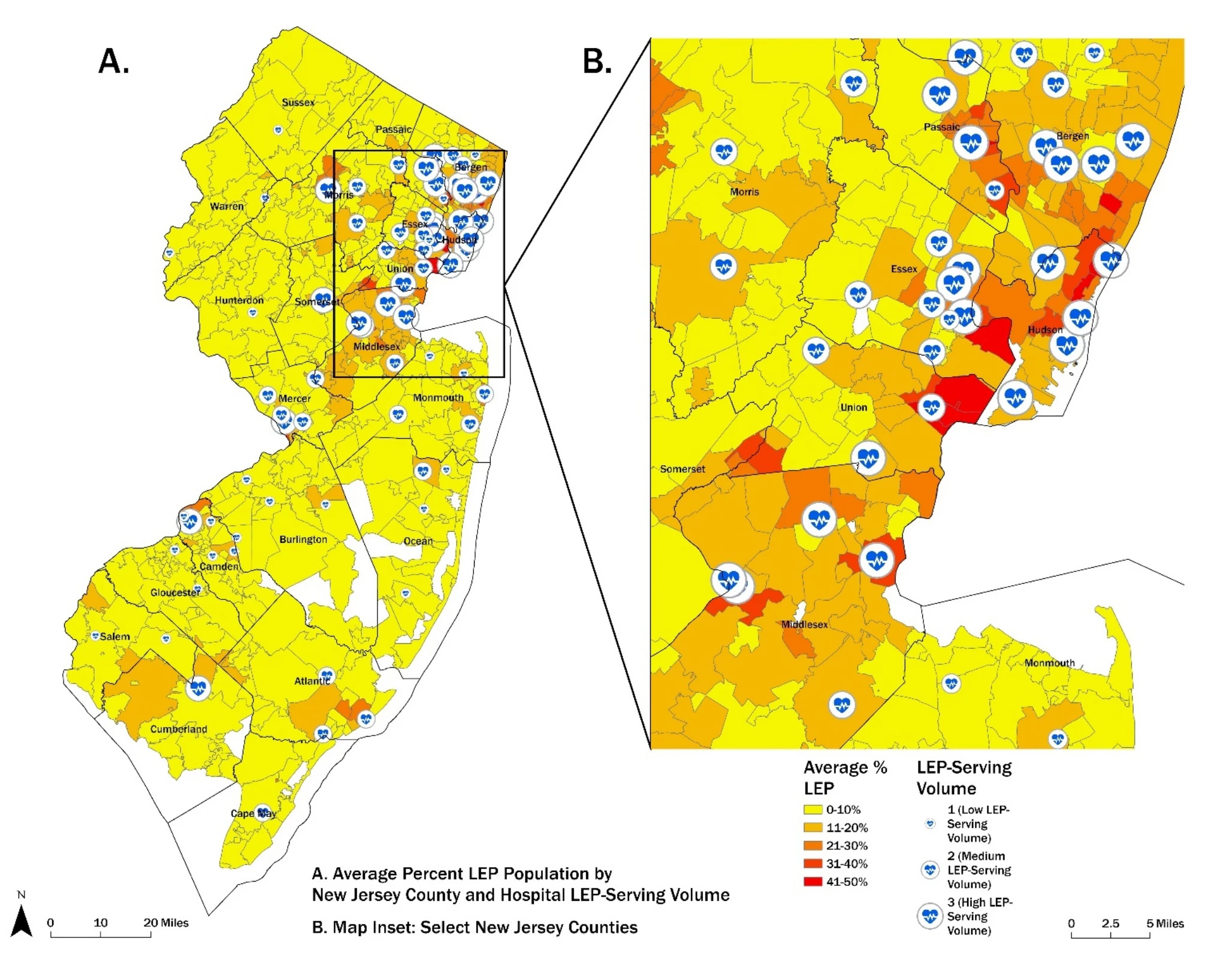Research Snapshot: The Impact of Language Barriers on Hospital Choice

(Adobe Stock)
By Andrew Nellis
September 24, 2024
New research shows that patients with limited English proficiency (LEP) may seek out care at lower-quality hospitals despite an increased travel distance and higher hospital readmission rates.
The study, led by Kathy Sliwinski PhD, MBE, RN, an AHRQ fellow at Northwestern University’s Feinberg School of Medicine, suggests that multilingual staff and services may be a significant factor.
The big picture
Hospitalized individuals with LEP experience disproportionately worse healthcare outcomes compared to their English-proficient counterparts. These outcome disparities can be attributed to multi-level social determinants of health, including unaddressed language barriers, poor health insurance coverage, and disparities in the quality of hospitals where LEP patients are more likely to receive care.

How the study was done
Using ArcGIS Pro software, researchers created a density map showing residential patterns of the LEP populations in New Jersey in 2016. High, middle, and low-LEP volume hospitals were then plotted as a secondary layer to compare where LEP individuals live and where they seek hospital care. To assess each hospital’s quality of care, the team used the Centers for Medicare and Medicaid Services Hospital Care Compare data, which provided 30-day hospital-wide readmission rates.
The weeds
Most high-LEP volume hospitals are in zip codes with higher LEP populations. However, the study found that at times, LEP patients forgo care at geographically closer hospitals. High-LEP volume hospitals on average were lower quality, defined by having higher 30-day hospital-wide readmission rates (20.1%, SD 6.9) compared to middle (15%, SD 6.7) and low-LEP volume hospitals (11.3%, SD 6.8, p<.001).
What’s next?
To work towards equity in hospital care quality and patient outcomes, future studies should examine which hospital attributes draw LEP patients to seek care in those settings.
Thoughts from the author.
“Previous qualitative studies reinforce this study’s findings by identifying that patients with LEP will go to health care points of care where they feel more likely to encounter a language concordant provider,” Sliwinski said.